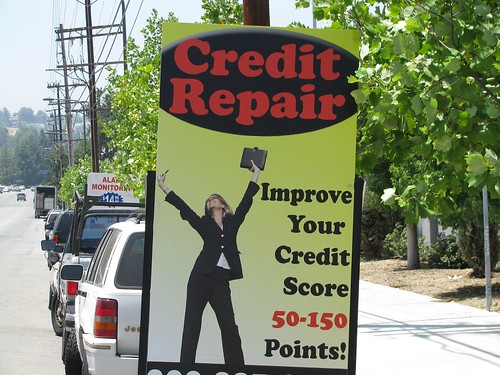College Admissions
College Admissions
Preparing for College
The Best College for You
What to Study
Applications
Education Options
Education Options
Private Universities
Public & State Universities
Community Colleges
Scholarships
Scholarships
African American Scholarships
Latino Scholarships
Native American Scholarships
Women Scholarships
College Grants
College Grants
Federal Grants
Merit Based Grants
Need Based Grants
Student Loans
Student Loans
Federal Student Loans
State Student Loans
No Co-signer Student Loans
Bad Credit Loans
Student Loan Consolidation
College Survival
College Survival
Financial Aid Tips
The Digital Student Blog
In our prior post, we took students on a walk through some key components of personal finance. Our focus was on “good” debt (loans for college) versus “bad” debt (credit card debt) and what loans to consider, all with the idea of minimizing the debt students accrue while in college.
 Today we spend some time with Kai Davis, a senior at the University of Oregon, who will graduate this spring with zero debt. Majoring in Economics and minoring in Business Administration, the Eugene, Oregon native offers readers some great insight into how to manage one’s personal finances.
Today we spend some time with Kai Davis, a senior at the University of Oregon, who will graduate this spring with zero debt. Majoring in Economics and minoring in Business Administration, the Eugene, Oregon native offers readers some great insight into how to manage one’s personal finances.
To provide students a thorough look at how Kai has managed to earn a degree debt-free, we present our discussion with him in question and answer format.
As a freshman, did you make it a goal to graduate with zero debt?
No, it wasn’t ever a plan, but I was able to achieve it. I’ve always felt that having a smaller goal like minimizing my debt would be better than a hard and fast rule of no debt. I’ve found that I’ve made the biggest impact on my savings when I’ve adopted a few small rules. I only carry a credit card with me to earn rewards points and fill up my gas tank (I earn 5% back when I use my Chase Visa at a BP gas station). Instead I carry a small amount of cash with me. When I have the impulse to make a larger purchase I wait a few days, assess the need, check my budget, and see if I can afford it. I always want to make my purchase fully aware of costs beyond the price tag.
 I think that understanding how to manage your money intelligently and aggressively is the most important skill that students can leave college with. A degree shows that you have the drive, intelligence, and ambition to complete 4 years of course work. It doesn’t give you a job in that field or even the desire for a job in that field. But understanding how to manage your finances is a skill that stays with you for life.
I think that understanding how to manage your money intelligently and aggressively is the most important skill that students can leave college with. A degree shows that you have the drive, intelligence, and ambition to complete 4 years of course work. It doesn’t give you a job in that field or even the desire for a job in that field. But understanding how to manage your finances is a skill that stays with you for life.
So, graduating without debt isn’t the skill to focus on. Graduating with the ability to understand personal finance is.
Everyone talks about the rising costs of college and how students today have to borrow money to be able to pay for school. How have you been able to graduate with no personal debt?
I was already planning on attending the University of Oregon due to its strong business program. I was able to save quite a bit of money by living at home for the first 3 years of college. I’ve worked 20-30 hours each week throughout college, either at work-study jobs or on start-ups with friends. I’ve found that spending a lot of time working during college doesn’t have to come at the cost of academic success. Rather, spending a good amount of time working during college has given me the ability to triage assignments by importance and complete my academic work in the minimum amount of time.
So your choice of school was critical to your current situation?
No, not at all. I’m lucky that the University of Oregon offered a strong Business Administration major and is an in-state school, so tuition was cheaper, but I’m fairly sure that any industrious student can manage their finances well in college if they take the time to learn the system.
Are there any other steps you have taken to earn additional money?
I’ve always worked on campus in work-study jobs. Its great for networking, learning new skills, and earning money while in college. I’ve also taken recent aggressive steps to manage my money by taking advantage of high interest savings and checking accounts. I switched from a bank paying me 1/10th of a percent interest annually to a bank paying 3.8% annually. If you’re committed to saving, the money quickly ads up.
Can you talk a little bit about credit cards and how you have managed to remain on top of credit card debt?
 As a college student you’re existing on a small budget and lines of credit from the school and banks. Let’s say you spend your budget quicker than you anticipated and are left with only your credit card for the month. Every purchase you make on the credit card ends up costing you more to pay it back. I’m not saying don’t make purchases on your credit card – I often do – but be mindful of how long it will take you to pay it back. When I hit the cap on my monthly budget, the first thing I do is assess which planned purchases I can cut back on. I’d much rather go without seeing a movie than having to pay that purchase back plus interest. While seeing a movie might be with $7 cash out of pocket, it isn’t worth $7 + compounded interest on a credit card.
As a college student you’re existing on a small budget and lines of credit from the school and banks. Let’s say you spend your budget quicker than you anticipated and are left with only your credit card for the month. Every purchase you make on the credit card ends up costing you more to pay it back. I’m not saying don’t make purchases on your credit card – I often do – but be mindful of how long it will take you to pay it back. When I hit the cap on my monthly budget, the first thing I do is assess which planned purchases I can cut back on. I’d much rather go without seeing a movie than having to pay that purchase back plus interest. While seeing a movie might be with $7 cash out of pocket, it isn’t worth $7 + compounded interest on a credit card.
So you would recommend that students set up a budget?
When I first moved out, I set a budget to plan out exactly how much I’d spend on food, utilities, gas, everything. I quickly found out that a budget often serves more as a sketch for spending than the actual spending. Some months I spend more on food than I anticipated, some months I spend much less. I use a budget to figure out how much I think I’ll be spending on average, and then use the final budget total for my monthly planning. If at the end of the month I’ve only spent 90% of my budget, I take a look at what I thought I’d be buying compared to what I did buy and see if I can trim my monthly estimate. More often than not I’ll treat myself with the unexpected windfall or deposit some money into savings. Establishing a budget so you have a general idea of what you’ll be spending in a month is much more important than nailing down the exact values you’ll be spending.
Have you made it a point to focus in on your credit rating?
 I think understanding how to use credit is as important as your degree. A horrible credit rating can harm you for a few years, but it doesn’t have to be the end of the world if you rebuild your rating. If you graduate college with bad credit, you have years to repair the credit before you start making those big purchases: a car, a house, a boat. One of my close friends graduated college without a credit rating. He was able to pay for his degree out of pocket and never bothered to open a credit card. By the time he was 26 he had a nice savings account – $50,000 or so. He decided to buy a house and let his savings appreciate there. He found a nice house at a wonderful price and went to talk to the bank about a loan and was turned down. Because he had no credit rating the bank saw him as too much of a risk and wouldn’t issue him a loan.
I think understanding how to use credit is as important as your degree. A horrible credit rating can harm you for a few years, but it doesn’t have to be the end of the world if you rebuild your rating. If you graduate college with bad credit, you have years to repair the credit before you start making those big purchases: a car, a house, a boat. One of my close friends graduated college without a credit rating. He was able to pay for his degree out of pocket and never bothered to open a credit card. By the time he was 26 he had a nice savings account – $50,000 or so. He decided to buy a house and let his savings appreciate there. He found a nice house at a wonderful price and went to talk to the bank about a loan and was turned down. Because he had no credit rating the bank saw him as too much of a risk and wouldn’t issue him a loan.
So is a credit standing as important as a degree?
Earning a degree elevates your standing in the eyes of potential employers just as a high credit rating helps you get credit to make those larger purchases. If you don’t know how to use your degree to effectively position yourself and get a job you want you won’t have as much success during your job search. Understanding how to manage a credit rating – even a bad one! – is one of the most important lessons you can learn in college.
Credit cards and student loans are not free money. Its very easy to think that you’ll just charge purchases to your credit card, make the minimum payment a few times, and be debt free in a few months, but it doesn’t work like that.
What are your thoughts about the importance of saving?
Learning to save now prevents problems later. If a student leaves college not knowing how to manage their money, how much will their lose before they learn how to save? If you leave college understanding the importance of having a check account, setting a monthly budget, eyeballing spending in certain areas relative to your income, shopping around for the highest interest rate on your accounts, and getting a credit card with rewards or cash back and paying it down quickly, you’ll be in great shape to manage your finances.
If you had the chance to offer an incoming freshman advice on personal finance, what would be the two or three things you would most emphasize with him or her?
I’d let them know that they don’t need to lose sleep over their finances. Yes, its an important thing to manage, but if you’re smart about paying your bills and keep to a schedule you’ll be fine. College is stressful enough without worrying that you won’t have enough liquidity come graduation. Take college one day at a time, try to avoid using a credit card unless it’s a purchase you know you can afford to pay off over time, and stay happy. At the end of the day, managing finances intelligently isn’t something you have to do perfectly, but just taking the time to read the fine print and understanding how to save and spend intelligently will make a large difference.
Flickr photos courtesy of Andres Rueda, TheTruthAbout and Eliane.